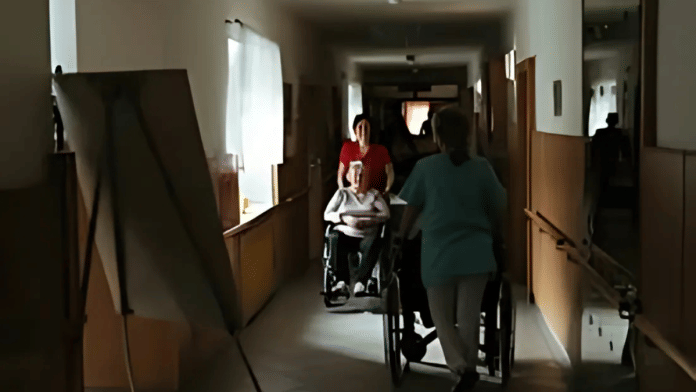Thank you dear subscribers, we are overwhelmed with your response.
Your Turn is a unique section from ThePrint featuring points of view from its subscribers. If you are a subscriber, have a point of view, please send it to us. If not, do subscribe here: https://theprint.in/
By 2050, India’s elderly population is projected to exceed 320 million, accounting for nearly 20% of the total population. This dramatic demographic shift underscores the urgent need for reliable and high-quality senior care facilities. However, the absence of standardized regulations has left many care homes operating without proper oversight, exposing the elderly to neglect and mistreatment.
As traditional family structures evolve and nuclear families become the norm, many seniors lack the support they once relied on. The growing demand for care homes, coupled with the lack of uniform standards, has led to inconsistencies in quality. Some facilities fail to provide the dignity and care elders deserve, exacerbated by economic pressures, migration, and the breakdown of traditional family support systems. A 2022 HelpAge India report found that nearly 50% of elderly individuals feel neglected or abandoned by their families, highlighting the need for well-regulated care facilities.
Recent incidents reveal the risks faced by seniors in poorly managed care homes:
- In August 2021, a fire at a senior care facility in Tamil Nadu claimed 11 lives due to a lack of fire safety measures.
- A 2020 Agewell Foundation report documented financial exploitation in care homes in Delhi-NCR, where residents were overcharged for substandard services.
- A 2023 Indian Journal of Gerontology study highlighted neglect, with seniors reporting inadequate medical care, poor hygiene, and emotional neglect.
These incidents highlight the critical need for strict quality and safety standards to ensure the well-being of elderly residents.
Recognizing these challenges, the National Accreditation Board for Hospitals & Healthcare Providers (NABH), in collaboration with the Quality Council of India (QCI) and the Ministry of Social Justice and Empowerment, has introduced Accreditation Standards for Care Homes. This initiative aims to establish benchmarks for quality and safety in elder care facilities across India.
NABH, which has significantly improved hospital standards over the years, (currently into its 6th edition) brings its expertise to this effort. The standards emerged as one of the outcomes of the National Health Conclave on Elder Care held in Bengaluru in 2023, organized by Vayah Vikas and the Association of Healthcare Providers of India (AHPI)in which NABH was also involved.
The NABH standards focus on several critical areas:
- Personalized Care: Emphasizing respect, dignity, and individualized care for each resident.
- Safety Measures: Implementing protocols to prevent accidents and manage emergencies.
- Skilled Staff: Ensuring caregivers are trained to address the physical, emotional, and psychological needs of seniors.
- Infrastructure and Hygiene: Ensuring facilities are clean, safe, and accessible.
- Transparency and Ethics: Promoting fair pricing, clear communication, and ethical practices to build trust.
These guidelines aim to transform care homes into spaces where seniors can live with dignity, safety, and comfort.
Despite these efforts, awareness remains a major obstacle. A 2023 HelpAge India survey found that only 22% of families are aware of accreditation standards, often choosing care homes based on convenience or cost rather than quality. This lack of awareness increases the likelihood of seniors being placed in substandard facilities.
Organizations like Vayah Vikas, which contributed to the development of these standards, are working to address this gap. Through partnerships with the Ministry of Social Justice and Empowerment, NABH, and AHPI, they aim to educate families and communities about the importance of accredited care homes and empower them to make informed decisions.
Families can help drive demand for better elder care by prioritising these factors:
- Accreditation Status: Ensure the facility is NABH-accredited.
- Staff Qualifications: Verify that caregivers are trained to meet the unique needs of seniors.
- Facility Conditions: Inspect for cleanliness, safety, and accessibility.
- Transparency: Look for clear communication about services, costs, and policies.
By making informed choices, families can protect their loved ones from substandard or exploitative practices and encourage the adoption of higher standards in the industry.
The introduction of NABH accreditation standards marks a significant step forward, but its success depends on collective action. Families must prioritise accredited facilities, governments should incentives compliance (like was done in hospitals), and community organisations need to raise awareness about these guidelines.
As India prepares for its demographic shift, it is our collective responsibility to ensure that senior citizens can live their later years with dignity, security, and comfort. These standards are more than guidelines—they reflect our commitment to honoring and caring for our elders.
By embracing these standards and working together, we can create a future where every senior citizen receives the quality care they deserve.
Dr.Alexander Thomas, Founder and Governing Board Member, Vayah Vikas (vayah-vikas.org)
These pieces are being published as they have been received – they have not been edited/fact-checked by ThePrint.


